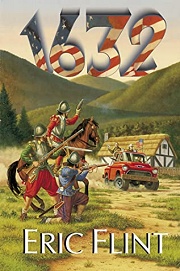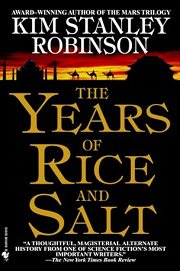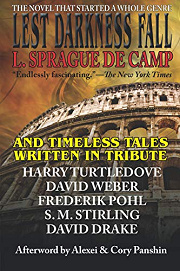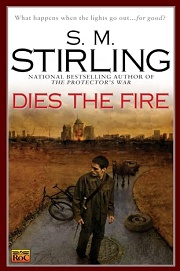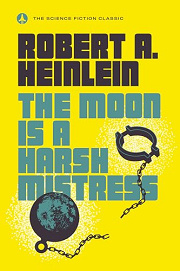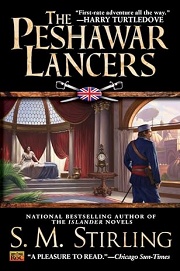Share your thoughts in a quick Shelf Talk!
1632 by Eric Flint
In a quiet West Virginia mining town, a sudden cosmic twist drops an entire community into war-torn 17th-century Europe. Facing muskets, monarchs, and upheaval, ordinary people lean on ingenuity and grit to survive—and reshape the world around them. 1632 blends high-stakes alternate history with blue-collar heroism, delivering a thrilling what-if where neighbors become nation-builders.
Have you read this book? Share what you liked (or didn’t), and we’ll use your answers to recommend your next favorite read!
Love 1632 but not sure what to read next?
These picks are popular with readers who enjoyed this book. Complete a quick Shelf Talk to get recommendations made just for you! Warning: possible spoilers for 1632 below.
In 1632, did you enjoy ...
... a sweeping, rigorously imagined re‑routing of world history and how institutions evolve under new pressures?
The Years of Rice and Salt by Kim Stanley Robinson
If what thrilled you in 1632 was seeing Grantville’s ideas ripple outward—from Mike Stearns bargaining with Gustavus Adolphus to the Committees of Correspondence reshaping civic life—then The Years of Rice and Salt will scratch the same itch. Robinson rebuilds global history after the Black Death, tracing how societies, science, and faith might develop along very different lines. It has that same big-canvas fascination with policy, culture, and everyday life you enjoyed when modern medicine, printing, and governance from Grantville rewired seventeenth‑century Europe.
... a resourceful modern transplant using practical know‑how to upend an earlier era?
Lest Darkness Fall by L. Sprague de Camp
Did you love how the Grantville crew leveraged radios, civil engineering, and basic industry—like when Julie Sims’s marksmanship and the town’s workshops turned the tide against marauding mercenaries? In Lest Darkness Fall, archaeologist Martin Padway is flung into late antiquity and fights the coming Dark Ages with printing presses, distillation, and savvy trade. It’s the same delightful puzzle‑box of, “What can one determined modern do here?” that made 1632’s bootstrapping so fun.
... a tight‑knit community rallying under practical leaders to rebuild society from scratch?
Dies the Fire by S. M. Stirling
If you enjoyed watching Mike Stearns forge a coalition, protect townsfolk, and turn a mining community into a functioning state amid warlords and nobles, Dies the Fire offers that same ensemble energy. When technology mysteriously stops working, clans and bands—much like Grantville’s militia and Committees of Correspondence—form under hands‑on leaders to relearn crafts, defend their people, and craft new rules for survival.
... grassroots revolution, constitutional debate, and building a new polity from first principles?
The Moon is a Harsh Mistress by Robert A. Heinlein
If the heart of 1632 for you was forging a nation—those town‑hall arguments, legal frameworks, and alliances with Gustavus Adolphus—then the Lunar rebellion in The Moon Is a Harsh Mistress will feel familiar. Like Grantville’s constitutional tinkering and Committees of Correspondence, Manny and his allies hash out rights, representation, and strategy while fighting a smarter political war than their opponents expect.
... meticulously textured alternate geopolitics, logistics, and daily life under a remade world order?
The Peshawar Lancers by S. M. Stirling
Part of the charm of 1632 is how lived‑in the world feels—mines, mills, field hospitals, and the nitty‑gritty of feeding armies while negotiating with princes. The Peshawar Lancers delivers that same dense, “you are there” immersion, imagining a British Empire transplanted to India after a cataclysm. You’ll get the detailed logistics and culture‑building you liked in Grantville’s alliances and campaigns, but across a vast, dangerous Great Game of an alternate Earth.
Unlock your personalized book recommendations! Just take a quick Shelf Talk for 1632 by Eric Flint. It’s only a few questions and takes less than a minute.
